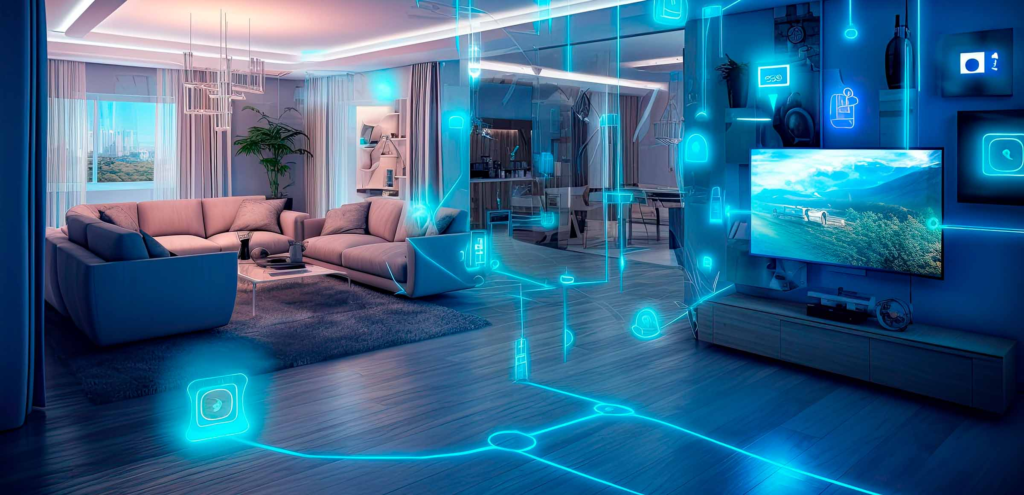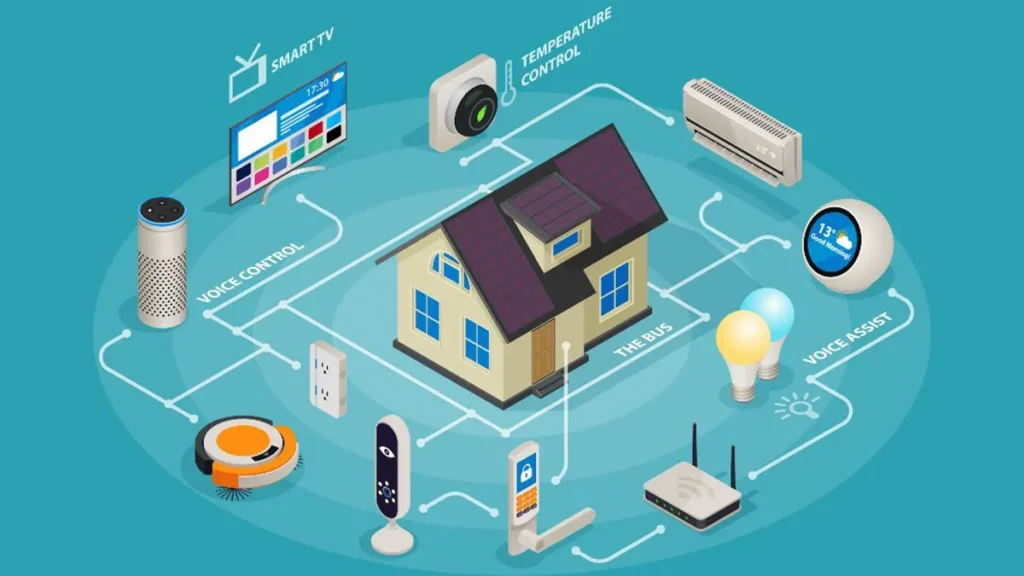The incorporation of artificial intelligence in modern Smart Homes & AI has changed the way that people are able to live, work as well as interact with environment. AI-powered home automation systems offer greater convenience, security along with efficiency. This makes day-to-day chores easy and improving general living quality. As technology advances AI-powered systems are becoming more sophisticated and accurate and transforming homes into extremely responsive environments that can are able to meet individual preferences and demands.
The Role of AI in Smart Home Automation
Artificial intelligence plays an integral function in facilitating various elements of the smart home. From voice-controlled assistants, to intelligent system for controlling climate, AI can enhance the user experience by allowing seamless interactions with appliances in the home. Smart assistants such as Amazon Alexa, Google Assistant along with Apple Siri are prime examples of AI-driven technology that allow homeowners to control their lighting as well as security and entertainment systems by using voice commands. They continuously learn from the user’s behavior and preferences, thereby making them more efficient with time.
Enhancing Efficiency in Energy Efficiency by implementing AI
Efficiency in energy is another major benefits that comes from AI used in the smart house. Intelligent devices for lighting and thermostats study patterns of activity and adjust settings in accordance with them to reduce energy use. Smart thermostats such as Nest and Ecobee make use of algorithms that use machine learning to learn about the preferences of users and improve scheduling for cooling and heating. By reducing the amount of energy used and utilizing AI-powered smart home solutions, they help to reduce carbon footprint as well as reducing the cost of utility for homeowners.
AI-Powered Security Solutions
Security is an essential element of modern-day smart homes and AI has developed advanced methods to increase security. AI-powered cameras for surveillance as well as facial recognition technology and smart locks give homeowners live monitoring and control of access. These systems are able to detect suspicious events, notify homeowners, and can even differentiate between faces that are familiar and those that are not. With AI-powered security systems, homeowners are able to remotely monitor their property and protect their family members, even when they’re away.
AI in Home Entertainment and Lifestyle
AI-powered home automation goes far beyond energy efficiency and security to add entertainment and lifestyle improvements. Smart TVs, music systems powered by AI and automated lighting provide customized entertainment experiences according to the preferences of the user. AI algorithms evaluate viewing habits and suggest content that is in line with your personal preferences, making entertainment more enjoyable and enjoyable. Similar to AI-driven lighting systems lighting systems that are powered by AI adjust the brightness and temperature of light to create the ideal ambience for different types of activities like relaxing, reading, or even hosting guests.
AI-Driven Smart Kitchens
The idea of AI-powered smart kitchens is gaining traction that makes meal preparation and planning easier. AI-powered appliances like smart refrigerators and cooking assistants aid users with grocery shopping provide recipes that are that are based on ingredients available, and even provide cooking directions. The intelligent kitchen appliances cut down on food waste by observing expiration dates, and providing recipes, which ensure the efficient utilization of resources.
AI for Health and Wellness in Smart Homes
Well-being and health are the main areas of focus of AI for smart home automation. Health monitoring devices powered by AI monitor important indicators such as sleep patterns, sleep patterns and physical activity giving valuable insight into the well-being of a person. Smart home integration through wearable devices allows continuous health monitoring in real time and alerts users to possible health concerns. AI-driven air purifiers as well as climate control systems also help to create better living conditions by ensuring that the air is of high quality and temperatures.
AI in Elderly Care and Assisted Living
Senior care or assisted living has greatly benefitted from AI-driven smart home technology. Home monitoring devices powered by AI offer assistance to seniors through notifying them of falls, observing the schedule of medications, and enabling remote communications with caregivers. These systems allow elderly people to be independent and ensure their wellbeing and safety. Artificially-powered robotic assistants can further improve the elderly’s care by providing support, reminders, as well as aid with daily tasks.
AI for Home Maintenance and Management
The use of AI in smart homes has also helped improve the home’s maintenance and management. Artificial intelligence-powered systems for predictive maintenance track the condition of appliances used in homes and inform homeowners of problems that could be a cause for serious issues. Smart irrigation systems make use of AI to analyse soil and weather patterns and optimize water use for lawns and gardens. These innovations reduce maintenance costs and help ensure efficient use of resources.
The Future of AI-Driven Smart Homes
The future of smart homes powered by AI is promising and is constantly evolving with technology forming the future of smart living spaces. The role of AI in intelligent homes is set to grow and will bring more advanced technology, enhanced energy efficiency, better security, and more personalization. As AI algorithms become more sophisticated and sophisticated, smart home systems will soon be able anticipate the needs of users with greater precision, creating a home that is able to seamlessly adapt to the individual preferences.
Challenges and Considerations
Despite the many benefits of AI-powered smart homes there are still challenges and issues to be addressed. Security and privacy are crucial considerations as smart home devices gather and process huge quantities of personal information. Implementing robust cybersecurity measures and clear data policies will be essential in increasing consumer confidence and the widespread adoption of AI-driven intelligent home technology.

Conclusion
In the meantime, as AI continues to transform the way that people interact with their spaces The potential for new ideas is endless. A convergence between AI with The Internet of Things, and smart home automation is opening the way for a new era that is highly efficient, intelligent and environmentally green homes. With AI being at leading the way, the vision of a interactive and receptive living space is now a reality, making life more convenient and enjoyable for families and individuals alike.


